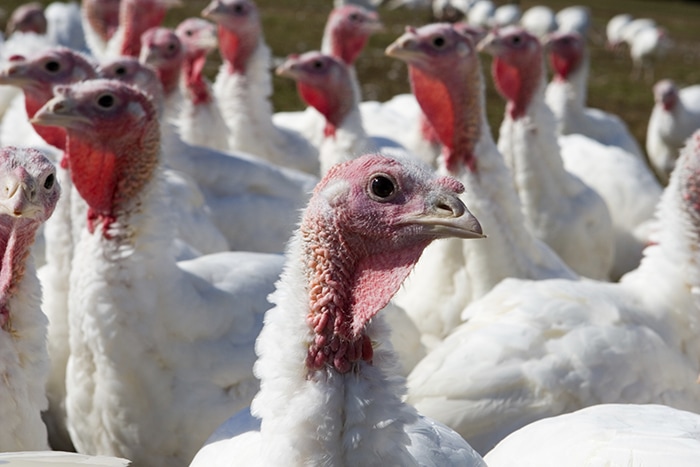Polish Agriculture Minister: No Impediment to Kosher Meat Exports for European Religious Communities
The Minister held meeting with the Chairman of the RCE, Rabbi Menachem Margolin, Dutch Chief Rabbi Binyomin Jacobs, review Board Chairman of the Social and Cultural Association of Jews in Poland (TSKZ).

Poland’s Agriculture Minister Grzegorz Puda offered much needed words of re-assurance to Jewish leaders on Wednesday that his Ministry currently does not carry out work aimed at changing the rules of slaughter in order to limit the supply of Kosher meat exports to religious communities across the continent.
The Minister held meeting with the Chairman of the RCE, Rabbi Menachem Margolin, Dutch Chief Rabbi Binyomin Jacobs and Mr. Edward Odoner Board Chairman of the Social and Cultural Association of Jews in Poland (TSKZ).
The minister’s meeting with the Jewish leaders took place after months of genuine concern among Jewish communities across the continent over the “five for animals” bill proposed by the Polish government, which initially included a limitation of Kosher slaughter to local needs – eliminating de facto kosher meat production in the country. As part of the struggle against the legislation, dozens of parliamentarians from across Europe, heads of Jewish organizations and communities from across the continent, as well as Israeli MKs responded to the initiative of EJA Chairman, Rabbi Menachem Margolin, and signed a letter requesting the Polish President and speakers of both houses of Parliament that they influence the Polish Prime Minister and members of parliament to rethink the bill.
As the major supplier of Kosher meat in Europe, any ban would have been hugely detrimental to traditional European Jewish Communities, particularly smaller ones without the means or network to secure kosher meat. Keeping Kosher is a fundamental pillar of traditional Judaism. Jewish leaders also fundamentally reject the premise that the kosher method of slaughter is in any way more cruel than more universal methods. Jewish leaders also underlined that animal welfare is a central tenet of Jewish practice and that kosher slaughter and animal welfare are in no way incompatible.
Jewish leaders across Europe were concerned that other countries could follow suit, thereby effectively banning the access to Kosher meat on the continent.
In a statement after the meeting RCE Chairman Rabbi Margolin said,
“We thank the Minister for his time, concern and much needed words of reassurance. The issue of a potential limitation of Kosher slaughter has put an entirely unnecessary strain on Polish-Jewish relations, a country with a long, rich and proud Jewish history.
“We understand that the Minister has currently no plans to advance this aspect of the Bill and that as a consequence there will be no impediment put in place that would limit the availability of Polish Kosher meat to religious communities across Europe. This is
very welcome news and we thank him for his time and his willingness to address our concerns. We agreed to stay in regular dialogue with the Minister and to meet in person as soon as circumstances allow.”
RCE General Director, Rabbi Arie Goldberg said:
“The issue of kosher slaughter in Poland has implications for Jewish life throughout Europe, and therefore even when the legislation is currently off the agenda, we are working with local Jewish organizations and communities to ensure the continuation of the practice in the country.”



